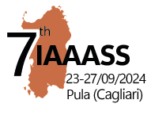
Graciela Andrei (Leuven, Belgium)
GRACIELA ANDREI holds a PhD in Biological Sciences and is an Assistant Professor at the Faculty of Medicine, Katholieke Universiteit Leuven, Belgium. At the Rega Institute for Medical Research, Department of Microbiology and Immunology, she carries out her research work that is mainly focused on chemotherapy of viral diseases, with emphasis on herpesviruses (cytomegalovirus, varicella-zoster virus and herpes simplex), poxviruses (vaccinia, cowpox, orf), polyomaviruses and papillomaviruses, and the study of the molecular mechanisms underlying the antiviral drug resistance phenomenon and anticancer activity of nucleotide analogues. Dr. G. Andrei has authored approximately 30 and co-authored approximately 260 papers in international peer-reviewed journals between 1983 and 2011. She has also (co)authored 6 book chapters and 10 proceedings articles and about 260 published abstracts between 1983 and 2011.
Ben Berkhout (Amsterdam, The Netherlands)

BEN BERKHOUT studied molecular biology at Leiden University and obtained his PhD in 1986 on translational control by means of RNA structure in bacteriophages. He performed postdoctoral research at the Dana Farber Cancer Institute (Harvard Medical School) and the National Institutes of Health (USA). He became Head of the Laboratory of Experimental Virology and was appointed Professor of Human Retrovirology at the University of Amsterdam in 2002. BB is editor-in-chief of Virus Research and editor for several journals. He supervised 49 PhD students and published over 580 manuscripts on HIV-1 replication, virus evolution, virus discovery and new antiviral therapeutic strategies.
Valeria Cagno (Lausanne, Switzerland)
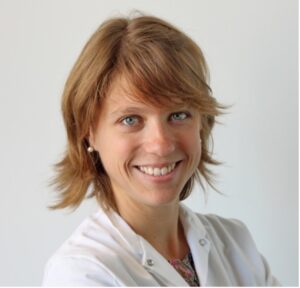 VALERIA CAGNO is a group leader at the Institute of Microbiology of Lausanne, working on broad-spectrum innovative antiviral approaches. She is a Swiss National Science Foundation Ambizione grantee. Previously she was Lecturer in the Department of Microbiology and Molecular Medicine of the University of Geneva. She did her postdoctoral work between the University of Geneva and EPFL. She got her PhD in Medicine and Experimental Therapy from the University of Torino, always working on antiviral strategies. Her current research focuses on finding innovative antiviral approaches for respiratory viruses, flaviviruses, and emerging viruses targeting the host cell through kinase inhibition, the viral attachment with nanomaterials mimicking attachment receptors, and viral RNA. She authored and co-authored 53 publications in international journals and she is the inventor of 6 patents [H-index: 24 (WoS) and H-index 28 (Google Scholar)]. Her interests extend beyond viruses and antiviral research to encompass science communication, particularly through podcasting.
VALERIA CAGNO is a group leader at the Institute of Microbiology of Lausanne, working on broad-spectrum innovative antiviral approaches. She is a Swiss National Science Foundation Ambizione grantee. Previously she was Lecturer in the Department of Microbiology and Molecular Medicine of the University of Geneva. She did her postdoctoral work between the University of Geneva and EPFL. She got her PhD in Medicine and Experimental Therapy from the University of Torino, always working on antiviral strategies. Her current research focuses on finding innovative antiviral approaches for respiratory viruses, flaviviruses, and emerging viruses targeting the host cell through kinase inhibition, the viral attachment with nanomaterials mimicking attachment receptors, and viral RNA. She authored and co-authored 53 publications in international journals and she is the inventor of 6 patents [H-index: 24 (WoS) and H-index 28 (Google Scholar)]. Her interests extend beyond viruses and antiviral research to encompass science communication, particularly through podcasting.
Angela Corona (Cagliari – Italy)
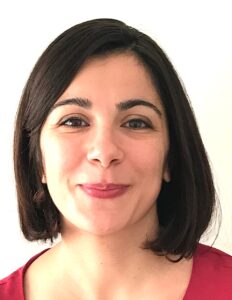 ANGELA CORONA is an Associated Professor of Microbiology at the University of Cagliari. She graduated in Pharmaceutical Chemistry at the University of Cagliari in 2010 and earned in 2014 a PhD in Biology and Biochemistry. She was Guest Researcher in 2011/2012 at the Drug Resistance Program, Center for Excellence in HIV / AIDS and Cancer Virology, Center for Cancer Research at the National Cancer Institute, MD, USA and in 2013 at the Laboratoire de Biologie et Pharmacologie appliquée, Ecole Normale Superieure de Cachan, Paris. Since 2015 she has been a post-doctoral researcher at the Molecular Virology Laboratory of the Department of Life and Environmental Sciences at the University of Cagliari. In 2017 she was Research Fellow at the IrsiCaixaAIDS Research Institute, Hospital Germans Trias and Pujol, Barcelona, granted by Chu Family Foundation (CFF) Women Scientists Award. Since 2020 she was Assistant Professor at the Faculty of Biology and Pharmacy, Department of Life and Environmental Sciences, Section of Molecular Virology, University of Cagliari (Italy). Angela is a molecular virologist whose research activity has different topics related to the identification and characterization of the mechanism of action of antiviral molecules with different targets: she started her antiviral research activity working on the ribonuclease-H function associated with the HIV-1 reverse transcriptase. She also investigates the pathological roles of viral proteins to validate novel targets for drug development. In particular, she focused on Ebola virus proteins involved in the inhibition of innate immune response. Her expertise in biochemical assays is coupled with expertise in the evaluation of antiviral activity in cell-based assays for Class 2 and Class 3 viral agents. For her research activities, she was awarded the “Cecilia Cioffrese- Malattie Virali 2016” prize by the Carlo Erba Foundation. Her work has resulted in 101 publications including papers and book chapters. She is part of the editorial board of Frontiers as Review Editor in Experimental Pharmacology and Drug Discovery and in Antivirals and Vaccines.
ANGELA CORONA is an Associated Professor of Microbiology at the University of Cagliari. She graduated in Pharmaceutical Chemistry at the University of Cagliari in 2010 and earned in 2014 a PhD in Biology and Biochemistry. She was Guest Researcher in 2011/2012 at the Drug Resistance Program, Center for Excellence in HIV / AIDS and Cancer Virology, Center for Cancer Research at the National Cancer Institute, MD, USA and in 2013 at the Laboratoire de Biologie et Pharmacologie appliquée, Ecole Normale Superieure de Cachan, Paris. Since 2015 she has been a post-doctoral researcher at the Molecular Virology Laboratory of the Department of Life and Environmental Sciences at the University of Cagliari. In 2017 she was Research Fellow at the IrsiCaixaAIDS Research Institute, Hospital Germans Trias and Pujol, Barcelona, granted by Chu Family Foundation (CFF) Women Scientists Award. Since 2020 she was Assistant Professor at the Faculty of Biology and Pharmacy, Department of Life and Environmental Sciences, Section of Molecular Virology, University of Cagliari (Italy). Angela is a molecular virologist whose research activity has different topics related to the identification and characterization of the mechanism of action of antiviral molecules with different targets: she started her antiviral research activity working on the ribonuclease-H function associated with the HIV-1 reverse transcriptase. She also investigates the pathological roles of viral proteins to validate novel targets for drug development. In particular, she focused on Ebola virus proteins involved in the inhibition of innate immune response. Her expertise in biochemical assays is coupled with expertise in the evaluation of antiviral activity in cell-based assays for Class 2 and Class 3 viral agents. For her research activities, she was awarded the “Cecilia Cioffrese- Malattie Virali 2016” prize by the Carlo Erba Foundation. Her work has resulted in 101 publications including papers and book chapters. She is part of the editorial board of Frontiers as Review Editor in Experimental Pharmacology and Drug Discovery and in Antivirals and Vaccines.
Emanuela D’Acunto (Roma- Italy)
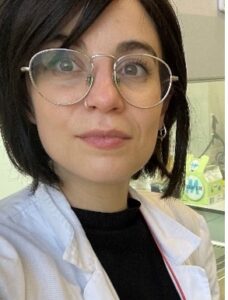 EMANUELA D’ACUNTO is a Research Scientist at Takis Biotech in the Drug Evaluation and Monoclonal Antibodies unit (DEMA). She graduated in Biological Sciences at the University of Rome La Sapienza and earned in 2019 a PhD in Cellular and Developmental Biology. She has been a post-doctoral researcher at Cellular and Serpinophaties Biology laboratory of the Department of Biology and Biotechnologies Charles Darwin at the University of Rome La Sapienza. She was Guest visiting Researcher in University College of London in which she developed and characterized specific monoclonal antibodies for evaluating immunological and anti-elastase role of AAT protein in a network of three groups, based in the UK, Spain and Italy, coordinated by Professor Maria Elena Miranda Banos. She worked also as Researcher at University Medical Centre of Hamburg in the laboratory of Giovanna Galliciotti. In Takis she is directly involved in the development technologies for drug discovery and development of therapeutic monoclonal antibodies against both cancer and viral pathologies.
EMANUELA D’ACUNTO is a Research Scientist at Takis Biotech in the Drug Evaluation and Monoclonal Antibodies unit (DEMA). She graduated in Biological Sciences at the University of Rome La Sapienza and earned in 2019 a PhD in Cellular and Developmental Biology. She has been a post-doctoral researcher at Cellular and Serpinophaties Biology laboratory of the Department of Biology and Biotechnologies Charles Darwin at the University of Rome La Sapienza. She was Guest visiting Researcher in University College of London in which she developed and characterized specific monoclonal antibodies for evaluating immunological and anti-elastase role of AAT protein in a network of three groups, based in the UK, Spain and Italy, coordinated by Professor Maria Elena Miranda Banos. She worked also as Researcher at University Medical Centre of Hamburg in the laboratory of Giovanna Galliciotti. In Takis she is directly involved in the development technologies for drug discovery and development of therapeutic monoclonal antibodies against both cancer and viral pathologies.
Joy Feng (San Francisco, CA – USA)
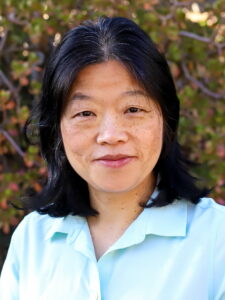 JOY FENG received her Ph.D. degree in Medicinal Chemistry from the University of Florida but realized that an enzyme is a much more skilled chemist than her, so Joy decided to enter the enzymology field and did her postdoc training in Dr. Karen Anderson’s lab at Yale. Joy’s primary research interest is antiviral nucleoside and nucleotide analogs, covering viral polymerases, mutation, drug resistance, potential human polymerases as off-targets, and drug-metabolizing pathways. Joy was a Sr. Principal Scientist, project leader, and core member of multiple research projects during her 24 years at Gilead Sciences. Her work has contributed to several marketed antivirals, including remdesivir, the first FDA-approved drug to treat COVID-19.
JOY FENG received her Ph.D. degree in Medicinal Chemistry from the University of Florida but realized that an enzyme is a much more skilled chemist than her, so Joy decided to enter the enzymology field and did her postdoc training in Dr. Karen Anderson’s lab at Yale. Joy’s primary research interest is antiviral nucleoside and nucleotide analogs, covering viral polymerases, mutation, drug resistance, potential human polymerases as off-targets, and drug-metabolizing pathways. Joy was a Sr. Principal Scientist, project leader, and core member of multiple research projects during her 24 years at Gilead Sciences. Her work has contributed to several marketed antivirals, including remdesivir, the first FDA-approved drug to treat COVID-19.
Brian Gowen (Logan, UT – USA)
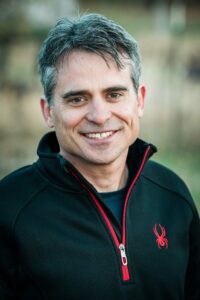 BRIAN GOWEN is a Professor of Virology in the Department of Animal, Dairy, and Veterinary Sciences (ADVS) and Director of the Institute for Antiviral Research (IAR) at Utah State University. He received a Ph.D. in Biomedical Sciences from the University of South Carolina School of Medicine in 2000, specializing in microbiology and immunology. Before that, he obtained a bachelor’s degree in microbiology from Colorado State University. Brian trained as a postdoctoral fellow at the Rocky Mountain Laboratories campus of the National Institute of Allergy and Infectious Diseases, National Institutes of Health, in Hamilton, Montana, from 2000-2004, where he studied host-pathogen interactions. He joined the ADVS department and the IAR in 2004 and specializes in the preclinical development of antiviral therapies to treat and prevent severe disease caused by arenaviruses and bunyaviruses, immunity to viral infections, modeling viral diseases, and virus-host cell interactions. Brian has published more than 80 peer-reviewed journal articles, holds three patents, is a former recipient of the William Prusoff Memorial Award, and serves on the editorial boards of Antiviral Research and Scientific Reports.
BRIAN GOWEN is a Professor of Virology in the Department of Animal, Dairy, and Veterinary Sciences (ADVS) and Director of the Institute for Antiviral Research (IAR) at Utah State University. He received a Ph.D. in Biomedical Sciences from the University of South Carolina School of Medicine in 2000, specializing in microbiology and immunology. Before that, he obtained a bachelor’s degree in microbiology from Colorado State University. Brian trained as a postdoctoral fellow at the Rocky Mountain Laboratories campus of the National Institute of Allergy and Infectious Diseases, National Institutes of Health, in Hamilton, Montana, from 2000-2004, where he studied host-pathogen interactions. He joined the ADVS department and the IAR in 2004 and specializes in the preclinical development of antiviral therapies to treat and prevent severe disease caused by arenaviruses and bunyaviruses, immunity to viral infections, modeling viral diseases, and virus-host cell interactions. Brian has published more than 80 peer-reviewed journal articles, holds three patents, is a former recipient of the William Prusoff Memorial Award, and serves on the editorial boards of Antiviral Research and Scientific Reports.
Philip Gribbon (Hamburg, Germany)
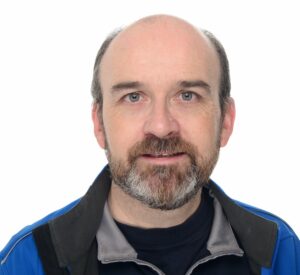 PHILIP GRIBBON is Head of Discovery Research at the Fraunhofer Institute for Translational Medicine and Pharmacology in Hamburg, Germany and Director General of the of the EU-OPENSCREEN European Research Infrastructure for Chemical Biology and Screening in Berlin. He is involved in multiple national and European programs on both drug discovery and FAIR data strategies. Previously, Philip was Chief Scientific Officer of the European ScreeningPort GmbH, which provided drug discovery and translational research services. Between 2005 and 2007, Philip was a manager at GlaxoSmithKline, Stevenage, focussed on the development of enabling technologies for drug discovery and development. In the period 2000 to 2005 he was a Principle Scientist at Pfizer working across multiple therapeutic areas. Between 1995- 1999, Philip was at the University of Manchester studying molecular interactions governing the function of connective tissues. He received his PhD in Biophysics from Imperial College London in 1995 and has MSc and BSc degrees in Physics. Philip currently serves as the vice-president of the Society of Laboratory Automation Sciences (SLAS).
PHILIP GRIBBON is Head of Discovery Research at the Fraunhofer Institute for Translational Medicine and Pharmacology in Hamburg, Germany and Director General of the of the EU-OPENSCREEN European Research Infrastructure for Chemical Biology and Screening in Berlin. He is involved in multiple national and European programs on both drug discovery and FAIR data strategies. Previously, Philip was Chief Scientific Officer of the European ScreeningPort GmbH, which provided drug discovery and translational research services. Between 2005 and 2007, Philip was a manager at GlaxoSmithKline, Stevenage, focussed on the development of enabling technologies for drug discovery and development. In the period 2000 to 2005 he was a Principle Scientist at Pfizer working across multiple therapeutic areas. Between 1995- 1999, Philip was at the University of Manchester studying molecular interactions governing the function of connective tissues. He received his PhD in Biophysics from Imperial College London in 1995 and has MSc and BSc degrees in Physics. Philip currently serves as the vice-president of the Society of Laboratory Automation Sciences (SLAS).
Reuben Harris (San Antonio, TX – USA)
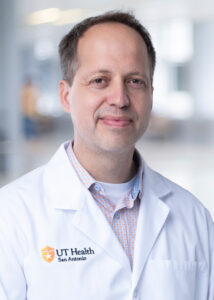 REUBEN HARRIS is an investigator of the Howard Hughes Medical Institute (HHMI) and chair of the Biochemistry and Structural Biology department at the University of Texas Health San Antonio. He received his B.S. (1993) and Ph.D. (1997) degrees from the University of Alberta and performed postdoctoral work at Baylor College of Medicine (1997-1998), Yale University (1998), and Cambridge University (1998-2003). He joined the University of Minnesota as an Assistant Professor in 2003 and was promoted to Associate Professor with Tenure in 2008 and to Full Professor in 2013. In 2022, Dr. Harris moved his laboratory to the University of Texas Health San Antonio. Dr Harris has received numerous grants and awards, including a Searle Scholarship, American Academy of Microbiology membership, NIH Merit Award, a Distinguished McKnight University Professorship, and the KT Jeang Prize. In 2015, he was also appointed as a Howard Hughes Medical Institute Investigator. Dr. Harris is an Associate Editor for Science Advances and an Editorial Board Member for the Journal of Biological Chemistry, Journal of Virology, and Cancer Research. He has published over 200 manuscripts, contributed to 13 patent applications, and co-founded a cancer therapeutics company. Dr. Harris’s scientific passion is elucidating mechanisms of mutation and establishing relevance to human biology and disease. As a doctoral student, he discovered a novel recombination-dependent mutation process operative in stationary-phase bacteria with implications for antibiotic resistance and microbial evolution. As a postdoctoral fellow, he helped solve an immunology Rosetta stone by discovering the DNA cytosine deaminase activity of AID and proposing a DNA deamination model for antibody gene diversification. Also as a postdoctoral fellow, he discovered the DNA cytosine deaminase activity of several APOBEC family members and, during the transition to faculty, elucidated a new mechanism of antiviral immunity by demonstrating APOBEC3G-catalyzed retroviral cDNA hypermutation. As a Principal Investigator, Dr. Harris has become known for his work on APOBEC enzymes in antiviral immunity. This body of work has shed light on fundamental mechanisms of antiviral immunity and yielded new strategies for drug development. In recent years, Dr. Harris’s virology studies have also enabled a major breakthrough in cancer research. His group found that APOBEC3 enzymes are responsible for a large proportion of mutations in breast, head/neck, lung, bladder, cervical, and other cancers. Independent work has confirmed these results and indicated that “APOBEC mutagenesis” far exceeds most other sources of mutations in cancer, including those attributable to smoking and UV rays. These breakthroughs have created new opportunities for cancer diagnosis, prognosis, and treatment by targeting tumor evolvability. One of his other passions is training and mentoring the next-generation of scientists, and he has trained a multitude of students and postdoctoral fellows over his career. Importantly, all of these trainees have succeeded in obtaining independent positions in academia or industry.
REUBEN HARRIS is an investigator of the Howard Hughes Medical Institute (HHMI) and chair of the Biochemistry and Structural Biology department at the University of Texas Health San Antonio. He received his B.S. (1993) and Ph.D. (1997) degrees from the University of Alberta and performed postdoctoral work at Baylor College of Medicine (1997-1998), Yale University (1998), and Cambridge University (1998-2003). He joined the University of Minnesota as an Assistant Professor in 2003 and was promoted to Associate Professor with Tenure in 2008 and to Full Professor in 2013. In 2022, Dr. Harris moved his laboratory to the University of Texas Health San Antonio. Dr Harris has received numerous grants and awards, including a Searle Scholarship, American Academy of Microbiology membership, NIH Merit Award, a Distinguished McKnight University Professorship, and the KT Jeang Prize. In 2015, he was also appointed as a Howard Hughes Medical Institute Investigator. Dr. Harris is an Associate Editor for Science Advances and an Editorial Board Member for the Journal of Biological Chemistry, Journal of Virology, and Cancer Research. He has published over 200 manuscripts, contributed to 13 patent applications, and co-founded a cancer therapeutics company. Dr. Harris’s scientific passion is elucidating mechanisms of mutation and establishing relevance to human biology and disease. As a doctoral student, he discovered a novel recombination-dependent mutation process operative in stationary-phase bacteria with implications for antibiotic resistance and microbial evolution. As a postdoctoral fellow, he helped solve an immunology Rosetta stone by discovering the DNA cytosine deaminase activity of AID and proposing a DNA deamination model for antibody gene diversification. Also as a postdoctoral fellow, he discovered the DNA cytosine deaminase activity of several APOBEC family members and, during the transition to faculty, elucidated a new mechanism of antiviral immunity by demonstrating APOBEC3G-catalyzed retroviral cDNA hypermutation. As a Principal Investigator, Dr. Harris has become known for his work on APOBEC enzymes in antiviral immunity. This body of work has shed light on fundamental mechanisms of antiviral immunity and yielded new strategies for drug development. In recent years, Dr. Harris’s virology studies have also enabled a major breakthrough in cancer research. His group found that APOBEC3 enzymes are responsible for a large proportion of mutations in breast, head/neck, lung, bladder, cervical, and other cancers. Independent work has confirmed these results and indicated that “APOBEC mutagenesis” far exceeds most other sources of mutations in cancer, including those attributable to smoking and UV rays. These breakthroughs have created new opportunities for cancer diagnosis, prognosis, and treatment by targeting tumor evolvability. One of his other passions is training and mentoring the next-generation of scientists, and he has trained a multitude of students and postdoctoral fellows over his career. Importantly, all of these trainees have succeeded in obtaining independent positions in academia or industry.
Peter Johannes Holst (Copenhagen, Denmark)
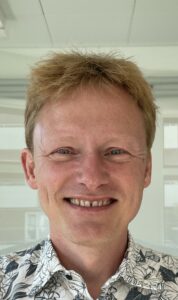
PETER HOLST, MD, PhD, is the founder and chief science officer of HERVOLUTION Therapeutics and an associate professor and group leader at the University of Copenhagen. As an academic scientist Dr. Holst´s research has been focused on immunization technologies for vaccines and immunotherapies with the development of antigen presentation enhancing technologies for delivery in viral vectors. These technologies have established a new bench mark for cell mediated immunity in clinical trials. In recent years Dr. Holst´s research has centered on antiviral vaccines and immunotherapies with the development of the Virus-Like-Vaccine platform. These are genetically delivered retrovirus based VLPs with engineered mutations into the antigen to stimulate augmented and tolerance breaking immune responses for cancer therapy. Dr. Holst is an inventor on 9 patent families and an author on 70 PubMed indexed academic publications.
Chirs Meier (Hamburg, Germany)
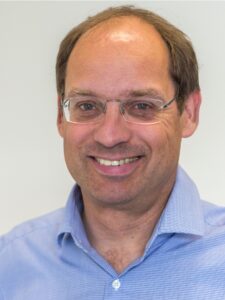 CHRIS MEIER born 1962 in Berlin, Germany, received a diploma and a doctorate (Ph.D.) in Chemistry from the University of Marburg, Germany. In his Ph.D. thesis he worked on the synthesis of ultimate carcinogens formed by metabolic steps from aromatic amines and which are involved in the induction of the chemical carcinogenesis in the group of Prof. Gernot Boche. He joined the Organic Chemistry Division at the Pasteur-Institute in Paris, France headed by Prof. Jean Igolen and Prof. Tam Huynh-Dinh as a Post-Doc and started working on nucleoside chemistry and prodrugs as antivirally active compounds. He returned to Germany joining the University of Frankfurt/Main in 1991 as an Assistant Professor under the mentorship of Prof. Joachim Engels. In 1996 he obtained the Habilitation in Organic Chemistry from the University of Frankfurt/Main, Germany. He was appointed as Associate Professor at the University of Würzburg, Germany and then in 1999 he joined University of Hamburg, Germany as a full professor for Organic Chemistry. He was president of the International Society on Nucleoside, Nucleotides and Nucleic Acids (IS3NA), board member of the International Society of Antiviral Research (ISAR) and is currently one of the Deputy Scientific Directors of the Centre for Structural Systems Biology (CSSB) in Hamburg. He received the William Prusoff Young Investigator Award in 2007 and the Antonin Holy-Award for outstanding research in Medicinal Chemistry in 2018 from the (ISAR). He was an invited guest professor and visiting professor at the Universities of Montpellier II and Toulouse, France and Shanghai, China. He is the deputy spokesman of a collaborative research center funded by the german research foundation. His research focuses on antiviral drug discovery, pronucleotide development, structure-based drug design of antivirals against emerging viruses, carbohydrate chemistry, phosphorylation methods in nucleoside chemistry and the synthesis of membrane-permeable and photocaged adenine second messengers. He has published more than 280 publications and is the inventor of 12 patents.
CHRIS MEIER born 1962 in Berlin, Germany, received a diploma and a doctorate (Ph.D.) in Chemistry from the University of Marburg, Germany. In his Ph.D. thesis he worked on the synthesis of ultimate carcinogens formed by metabolic steps from aromatic amines and which are involved in the induction of the chemical carcinogenesis in the group of Prof. Gernot Boche. He joined the Organic Chemistry Division at the Pasteur-Institute in Paris, France headed by Prof. Jean Igolen and Prof. Tam Huynh-Dinh as a Post-Doc and started working on nucleoside chemistry and prodrugs as antivirally active compounds. He returned to Germany joining the University of Frankfurt/Main in 1991 as an Assistant Professor under the mentorship of Prof. Joachim Engels. In 1996 he obtained the Habilitation in Organic Chemistry from the University of Frankfurt/Main, Germany. He was appointed as Associate Professor at the University of Würzburg, Germany and then in 1999 he joined University of Hamburg, Germany as a full professor for Organic Chemistry. He was president of the International Society on Nucleoside, Nucleotides and Nucleic Acids (IS3NA), board member of the International Society of Antiviral Research (ISAR) and is currently one of the Deputy Scientific Directors of the Centre for Structural Systems Biology (CSSB) in Hamburg. He received the William Prusoff Young Investigator Award in 2007 and the Antonin Holy-Award for outstanding research in Medicinal Chemistry in 2018 from the (ISAR). He was an invited guest professor and visiting professor at the Universities of Montpellier II and Toulouse, France and Shanghai, China. He is the deputy spokesman of a collaborative research center funded by the german research foundation. His research focuses on antiviral drug discovery, pronucleotide development, structure-based drug design of antivirals against emerging viruses, carbohydrate chemistry, phosphorylation methods in nucleoside chemistry and the synthesis of membrane-permeable and photocaged adenine second messengers. He has published more than 280 publications and is the inventor of 12 patents.
Johan Neyts (Leuven, Belgium)
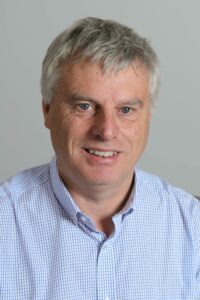 JOHAN NEYTS is full professor of Virology at the University of Leuven (KU Leuven), Belgium where he teaches virology at the medical school and at the school of dentistry. His laboratory www.antivirals.be has a long-standing expertise in the development of antivirals strategies and drugs against emerging and neglected viral infections such as dengue and other flaviviruses, Chikungunya and other alphaviruses, enteroviruses, noroviruses, HDV, HEV, rabies and coronaviruses. An ultrapotent pan-serotype dengue inhibitor developed in his laboratory and at the Centre for Drug Design & Development (www.cd3.be) is currently in phase II clinical studies at Janssen Pharmaceutica (J&J) and efficacy has recently been shown in dengue infected humans. A second focus is on the development of the PLLAV (Plasmid Launched Live Attenuated Virus) vaccine technology, which is based on the yellow fever virus vaccine as a vector. It allows to rapidly engineer highly thermostable vaccines against multiple viral pathogens. Johan is a past-president of the International Society for Antiviral Research. He is the co-founder of KU Leuven spin-off companies AstriVax www.astrivax.com and Okapi Sciences. He is responsible for the Belgian VirusBank platform www.virusbankplatform.be an investment of the Belgian Federal Government in epidemic/pandemic preparedness. He published >660 papers, received multiple national and international awards, has given ~350 invited lectures and a large number of interviews to lay-press.
JOHAN NEYTS is full professor of Virology at the University of Leuven (KU Leuven), Belgium where he teaches virology at the medical school and at the school of dentistry. His laboratory www.antivirals.be has a long-standing expertise in the development of antivirals strategies and drugs against emerging and neglected viral infections such as dengue and other flaviviruses, Chikungunya and other alphaviruses, enteroviruses, noroviruses, HDV, HEV, rabies and coronaviruses. An ultrapotent pan-serotype dengue inhibitor developed in his laboratory and at the Centre for Drug Design & Development (www.cd3.be) is currently in phase II clinical studies at Janssen Pharmaceutica (J&J) and efficacy has recently been shown in dengue infected humans. A second focus is on the development of the PLLAV (Plasmid Launched Live Attenuated Virus) vaccine technology, which is based on the yellow fever virus vaccine as a vector. It allows to rapidly engineer highly thermostable vaccines against multiple viral pathogens. Johan is a past-president of the International Society for Antiviral Research. He is the co-founder of KU Leuven spin-off companies AstriVax www.astrivax.com and Okapi Sciences. He is responsible for the Belgian VirusBank platform www.virusbankplatform.be an investment of the Belgian Federal Government in epidemic/pandemic preparedness. He published >660 papers, received multiple national and international awards, has given ~350 invited lectures and a large number of interviews to lay-press.
John ‘Jay’ Schneekloth, Jr., Ph.D. (Frederick, MD -USA)
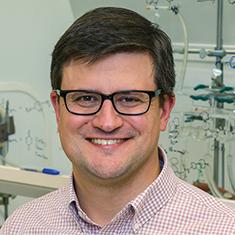 JHON SCHNEEKLOTH received his undergraduate degree from Dartmouth College in 2001 where he worked with Prof. Gordon Gribble. He then moved to Yale University and obtained a Ph.D. from the chemistry department with Prof. Craig Crews in 2006. As a graduate student he studied natural product total synthesis and developed the first cell-permeable PROTAC molecules. He then pursued an NIH postdoctoral fellowship with Prof. Erik Sorensen at Princeton University where he worked on the development of a new multicomponent reaction and the application of this reaction to the synthesis of analgesic natural products. He returned to Yale in 2009 where he worked as a medicinal chemist at the Yale Small Molecule Discovery Center. In 2011, Dr. Schneekloth joined NCI where his research involves using synthetic chemistry and high throughput chemical biology approaches to develop chemical probes of RNA, with a particular emphasis on targeting RNA with druglike small molecules.
JHON SCHNEEKLOTH received his undergraduate degree from Dartmouth College in 2001 where he worked with Prof. Gordon Gribble. He then moved to Yale University and obtained a Ph.D. from the chemistry department with Prof. Craig Crews in 2006. As a graduate student he studied natural product total synthesis and developed the first cell-permeable PROTAC molecules. He then pursued an NIH postdoctoral fellowship with Prof. Erik Sorensen at Princeton University where he worked on the development of a new multicomponent reaction and the application of this reaction to the synthesis of analgesic natural products. He returned to Yale in 2009 where he worked as a medicinal chemist at the Yale Small Molecule Discovery Center. In 2011, Dr. Schneekloth joined NCI where his research involves using synthetic chemistry and high throughput chemical biology approaches to develop chemical probes of RNA, with a particular emphasis on targeting RNA with druglike small molecules.
Kathie Seley-Radtke (Baltimore, MD – USA)
 KATHERINE SELEY-RADTKE is a Professor in the Department of Chemistry & Biochemistry at the University of Maryland, Baltimore County. Her medicinal chemistry research focuses on targeting coronaviruses, filoviruses, flaviviruses among other infectious diseases, using her novel “fleximer” nucleoside/tide scaffolds. Prof. Seley-Radtke is currently the President of the International Society for Antiviral Research (ISAR), as well as a past President and current Secretary for the International Society for Nucleosides, Nucleotides & Nucleic Acids (IS3NA). She also chaired of the 2023 Gordon Research Conference on Nucleosides, Nucleotides & Oligonucleotides. Prof. Seley-Radtke also serves as Editor in Chief of Annual Reports in Medicinal Chemistry, and as Associate Editor of Science Advances/AAAS. Some of her other service contributions include her continuing role as one of the U.S. National Academies of Science’s Jefferson Science Fellows with the U.S. Dept. of State and the U.S. Embassy in Moscow, Russia. For the past 22 years, Kathie has served on numerous NIH and other funding agency review panels, including as Chair/Alternate Chair. Most notably, Kathie has been heavily involved in mentoring junior colleagues, and as part of this, when she was President of IS3NA, she initiated the Chu Family Foundation Fellowships for Early Career Women for both IS3NA and ISAR, and she continues to Chair that important committee for both Societies. She has published over 100 papers and book chapters, has 27 patents, given over 170 invited and plenary lectures world-wide, and has received many honors including the American Chemical Society’s Chemist of the Year in 2016, the University of Maryland System’s Regents’ Faculty Award for Excellence in Research in 2017, the 2015-2018 UMBC Presidential Research Professor, as well as one of the Baltimore Sun’s 25 Women to Watch. More recently she was selected as Kathie was awarded the 2020 ISAR Antonín Holy Memorial Award for her outstanding accomplishments and demonstrated service to the antiviral and medicinal chemistry field. The Holy award is the Society’s top honor for chemists.
KATHERINE SELEY-RADTKE is a Professor in the Department of Chemistry & Biochemistry at the University of Maryland, Baltimore County. Her medicinal chemistry research focuses on targeting coronaviruses, filoviruses, flaviviruses among other infectious diseases, using her novel “fleximer” nucleoside/tide scaffolds. Prof. Seley-Radtke is currently the President of the International Society for Antiviral Research (ISAR), as well as a past President and current Secretary for the International Society for Nucleosides, Nucleotides & Nucleic Acids (IS3NA). She also chaired of the 2023 Gordon Research Conference on Nucleosides, Nucleotides & Oligonucleotides. Prof. Seley-Radtke also serves as Editor in Chief of Annual Reports in Medicinal Chemistry, and as Associate Editor of Science Advances/AAAS. Some of her other service contributions include her continuing role as one of the U.S. National Academies of Science’s Jefferson Science Fellows with the U.S. Dept. of State and the U.S. Embassy in Moscow, Russia. For the past 22 years, Kathie has served on numerous NIH and other funding agency review panels, including as Chair/Alternate Chair. Most notably, Kathie has been heavily involved in mentoring junior colleagues, and as part of this, when she was President of IS3NA, she initiated the Chu Family Foundation Fellowships for Early Career Women for both IS3NA and ISAR, and she continues to Chair that important committee for both Societies. She has published over 100 papers and book chapters, has 27 patents, given over 170 invited and plenary lectures world-wide, and has received many honors including the American Chemical Society’s Chemist of the Year in 2016, the University of Maryland System’s Regents’ Faculty Award for Excellence in Research in 2017, the 2015-2018 UMBC Presidential Research Professor, as well as one of the Baltimore Sun’s 25 Women to Watch. More recently she was selected as Kathie was awarded the 2020 ISAR Antonín Holy Memorial Award for her outstanding accomplishments and demonstrated service to the antiviral and medicinal chemistry field. The Holy award is the Society’s top honor for chemists.
Vincenzo Summa (Naples, Italy)
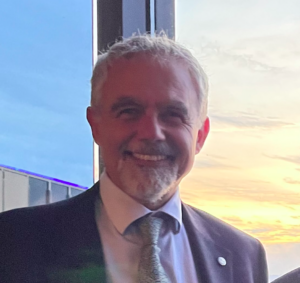 VINCENZO SUMMA is a full professor of Medicinal Chemistry in department of Pharmacy at Federico II University, Naples, since May 2019. He is one of the founders in 2009 of IRBM spa a research center formally a spin-off of the Merck Research Laboratories located in Rome. He also served as Vice-president, Drug Discovery of IRBM spa. Vincenzo is graduated in Industrial Chemistry at the University of Rome ‘La Sapienza’ in 1991 and in 1997 obtained his Ph.D. in Organic Chemistry at Bergische Universität Wuppertal. From 1992 to 1994 was also a fellow at the University of Rome “La Sapienza”. In 1996 he started his industrial carrier at Merck Research Laboratory in Rome at the Medicinal Chemistry Department. He gained increasing scientific and managerial responsibility becoming Director in the Med. Chem. department. He led several projects mainly in antiviral drug discovery and development fields bringing successfully several compounds into the clinical development. Vincenzo’s most relevant scientific contributions are the discovery of two antiviral drugs, Raltegravir (Isentress), the First in Class HIV integrase inhibitor approved and Grazoprevir the Best in Class HCV protease inhibitors. He received important awards for the discovery of these two very important drugs. He was appointed twice Heroes of Chemistry from the American Chemical Society for the discovery, Raltegravir ( ISENTRESS®) the first in class HIV int. inh. in 2013 and , in 2017 for the discovery of Grazoprevir-ZAPATIER® the Best in class HCV protease inhibitor. He received the Holì Memorial Award by the International Society for Antiviral Research in 2023. The most recent award is the Medaglia Giacomello for the Division of Medicinal Chemistry of the Italian Chemistry Society in August 2024. The current main research areas are in antivirals, epigenetic modulators, neglect and rare diseases.
VINCENZO SUMMA is a full professor of Medicinal Chemistry in department of Pharmacy at Federico II University, Naples, since May 2019. He is one of the founders in 2009 of IRBM spa a research center formally a spin-off of the Merck Research Laboratories located in Rome. He also served as Vice-president, Drug Discovery of IRBM spa. Vincenzo is graduated in Industrial Chemistry at the University of Rome ‘La Sapienza’ in 1991 and in 1997 obtained his Ph.D. in Organic Chemistry at Bergische Universität Wuppertal. From 1992 to 1994 was also a fellow at the University of Rome “La Sapienza”. In 1996 he started his industrial carrier at Merck Research Laboratory in Rome at the Medicinal Chemistry Department. He gained increasing scientific and managerial responsibility becoming Director in the Med. Chem. department. He led several projects mainly in antiviral drug discovery and development fields bringing successfully several compounds into the clinical development. Vincenzo’s most relevant scientific contributions are the discovery of two antiviral drugs, Raltegravir (Isentress), the First in Class HIV integrase inhibitor approved and Grazoprevir the Best in Class HCV protease inhibitors. He received important awards for the discovery of these two very important drugs. He was appointed twice Heroes of Chemistry from the American Chemical Society for the discovery, Raltegravir ( ISENTRESS®) the first in class HIV int. inh. in 2013 and , in 2017 for the discovery of Grazoprevir-ZAPATIER® the Best in class HCV protease inhibitor. He received the Holì Memorial Award by the International Society for Antiviral Research in 2023. The most recent award is the Medaglia Giacomello for the Division of Medicinal Chemistry of the Italian Chemistry Society in August 2024. The current main research areas are in antivirals, epigenetic modulators, neglect and rare diseases.
Damian Young Ph.D. (Houston, TX, USA)
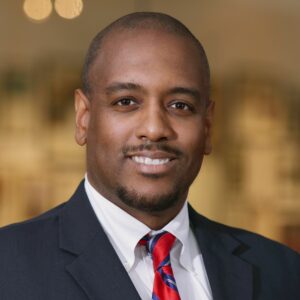
DAMIAN YOUNG is a Assistant Director for the Center for Drug Discovery at Baylor College of Medicine. He is also a faculty member within the Departments of Pharmacology and Pathology and Immunology. Adjunct Assistant Professor, Chemistry, Rice University, Houston, Texas USA. Member of the Dan L Duncan Comprehensive Cancer Center, Baylor College of Medicine, Houston, Texas United States. HE obtained his BS from Howard University, District of Columbia, United States. His PhD from North Carolina State University, Raleigh, North Carolina United States and worked as Post-Doctoral Fellowship at Harvard University and the Broad Institute of Harvard and MIT Cambridge, Massachusetts United States. His research focuses on the development of chemical pathways leading to molecules that can be used to probe fundamental and disease-associated biology. His lab is pioneering new chemical and biophysical methodologies related to fragment-based drug discovery
